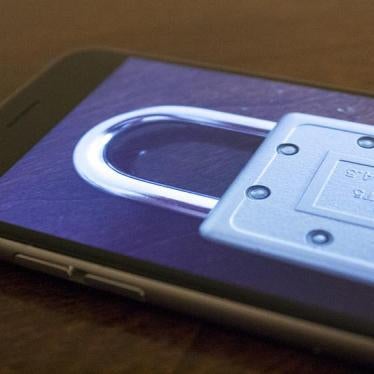An open Internet offers both benefits and risks for human rights. It has allowed activists anywhere to have global impact and hold institutions accountable. But digital technologies have enabled surveillance on an unprecedented scope and scale. When abused, surveillance facilitates identifying journalistic sources, government critics, or members of vulnerable minority groups, and exposes such individuals to retaliation.
For example, the Ethiopian government has used abusive surveillance to intimidate and silence journalists and independent voices. It has also gone further to thwart and discourage individuals from adopting surveillance counter-measures to protect their privacy and security. In 2014, six bloggers from Zone 9, who write on current events in Ethiopia, were charged under the country’s abusive counterterrorism law. Among the evidence the prosecution cited was the digital security and encryption training that the bloggers took to learn to shield their communications.
Strong encryption helps prevent crime and abuses. Ordinary Internet users count on technology companies to encrypt and secure their data. Journalists increasingly use privacy and anonymity tools built on encryption to protect their sources. The encryption tools we all rely on must be effective and robust, without built-in vulnerabilities that can be exploited by abusive actors.
The best way to protect at-risk communities and ordinary users alike is to promote broad use of strong encryption and protect anonymous expression online. Both are critical to the enjoyment of freedoms of expression, association, the press, the right to privacy, and other rights. That is what we said in our comments to the Special Rapporteur on freedom of opinion and expression David Kaye for his 2015 report to the Human Rights Council.
However, government officials in the US, UK, and elsewhere have begun to pressure companies to provide “back doors” into encrypted services or devices to spy on criminals and would-be terrorists. Their proposals are so broad that they would undermine the security of all Internet users and likely make more people vulnerable to cybercrime and other threats. It is nearly impossible to build a technological “back door” into encrypted services that could only be used by one’s own government – hackers, cybercriminals, and abusive governments could use it too.
Governments have an obligation to investigate and prosecute crime and thwart terrorist attacks. But the proposed measures would lead to severe and pervasive intrusions on privacy that would, essentially, eliminate it online. Governments have not made the case that we need such a radical step.








